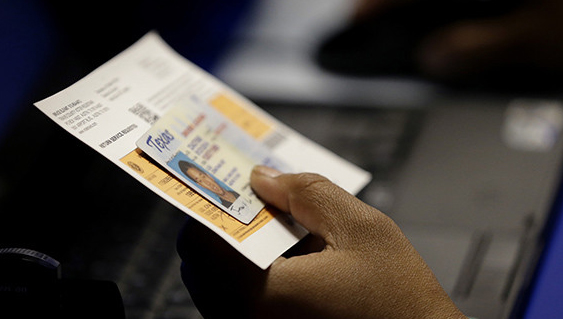If there’s a central theme to the 2016 election, it is outrage against Washington. Whether it’s with the Panama Papers or Campaign Financing, the majority of Americans feel great frustration with an establishment that seems bent on obstructing any meaningful change. The superdelegate system, in this regard, may be seen as just another obstacle in the path of democracy; with its concern rising higher on the agenda as the clash between Sanders and Clinton sparks towards New York. Others however, would argue its significance remains as crucial today as did back in the 1980s when it was conceived for the consolidation of the Democratic Party.

There are 718 superdelegates involved in this year’s DNC. They are essentially unelected delegates, comprised of party leaders, governors, congressmen, and DNC members, who are free to cast their vote of their own volition this July in Philadelphia at the convention. Presently, their pledges therefore don’t count for anything but political pundits and avid supporters are nevertheless paying attention to the 472 pledged to Clinton, 32 to Sanders, and 207 uncommitted. It’s important in that these so-called pledges hold influence over some voters (who may be unwilling to support a ruffian like Sanders) and in that they have been toted up irresponsibly by many as assumed votes already, thus giving the impression that Sanders’ campaign is beyond hope.
The system came about as a result of disappointing election results for the Democrats. As Jim Hunt, the 1982 Chairman of the Democratic Party Commission explained eight years ago in a Washington Post piece, 1972 saw a Democratic Party ‘out of step with mainstream Democratic leaders.’ George McGovern, the nominee that year, lost a devastating defeat to Richard Nixon. Four years later, Carter prevailed but his Presidency and defeat in 1980 proved that it wasn’t even ‘enough just to win;’ clarity and cooperation between all branches of the party was needed. It was a means by which the party’s greater interests could be accounted for with 1984 seeing its first contenders rise to the fore. They exist ‘really to make sure that party leaders and elected officials don’t have to be in a position where they are running against grass roots activists,’ according to today’s Democratic Chairwoman, Debbie Schultz. Today, of course, superdelegates account for 15% of overall votes in the party’s nominating process; a troubling portion to many.

To address its defenders first, it must be acknowledged that in 1980 the Democratic Party was bitterly divided with Carter’s own nomination being called into question by the challenger, Ted Kennedy. To defeat the Republicans, some kind of system was likely needed and this system, whilst democratically questionable, seemed reasonable to many at the time . Indeed their presence could be taken with a grain of salt as the Democratic Party’s rules dictate that these delegates should ‘in all good conscience reflect the sentiments of those who elected them.’ Are they doing that, though?
The Sanders’ campaign is playing a much tougher game today than it was a couple of months ago when the New Hampshire primary resulted in a virtual tie on an account of these premature pledges, despite Sander’s 60% public vote. Since then, reports have circulated that superdelegates are relentlessly being messaged with calls for support on his side. For some superdelegates vowed to Clinton’s side, this is causing great agitation amongst those who believe these delegates aren’t representing the people of their states. As aforementioned though, they are not voted for and their allegiances mainly derive from statehood and past representations; some are merely old stalwarts of the party. Others, like Peggy Schaffer of Maine for example, are less certain on their final decision. Having been a longtime Clinton supporter but witnessed Sanders win her state, she has decided to opt for whichever candidate winds up with the most pledged delegates. And those who have outright ‘offended’ Sanders’ most valiant supporters, like Akilah R. Ensley of the Young Democrats of America, have been bombarded with messages bordering on abuse via Social Media for her support of Clinton.

In many instances, this doesn’t paint a wholly positive picture of the Sanders’ campaign but as many have argued, this system may justify such responses. Sally Kohn of CNN, for example has reiterated the DNC’s account of the superdelegates’ role as one which exists ‘to preserve the power and influence of the Democratic Party’s elite.’ Naturally in this day and age, online petitions have therefore begun to gather momentum, with some calling for the removal of superdelegates altogether whilst others simply ask for them to align their vote with the choice of the regular voters. Then, there is Spencer Thayer’s ‘Superdelegate Hit List,’ a sinister sounding but simple website list of superdelegate contact information, which has served to only add fuel to this fire. It will of course remain to be seen whether some of them end up feeling the blame but as it is now, he will need to muster landslide defeats in the next few contests to secure the 2,383 votes needed for nomination.
The superdelegate system may not be a complete barrier to winning the Presidency but like Citizen’s United, it is hard to argue that it doesn’t make things much more difficult for candidates like Sanders. Many argue that it’s still possible that those pledged to Clinton would change their mind (as they did in 2008) but many more seem to fear, even given success in states like New York and California, the superdelegates would screw Sanders over. The memory of those defeated liberals between 1968 and 1988 remains a sore note for the Democratic Party and Clinton, in the end, may just be the safer bet.
Andrew Carolan



